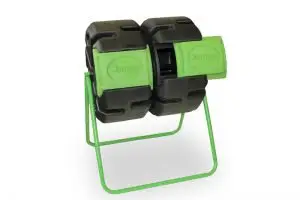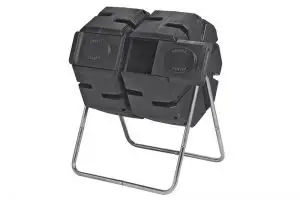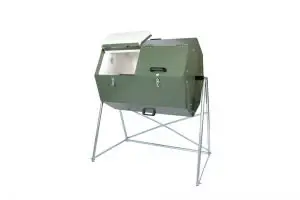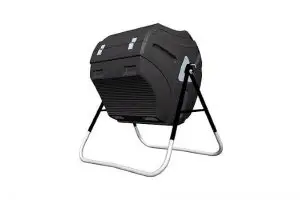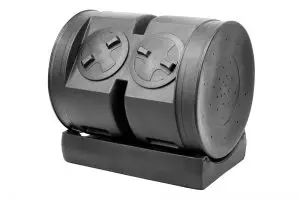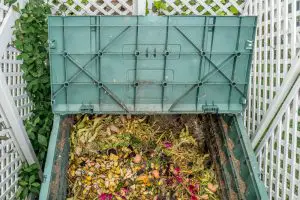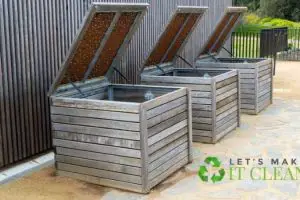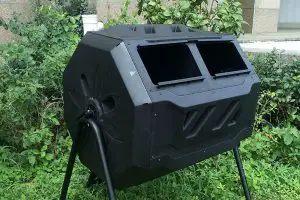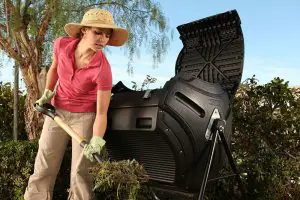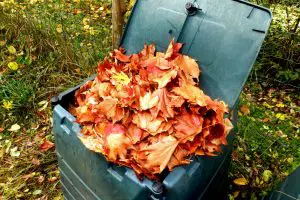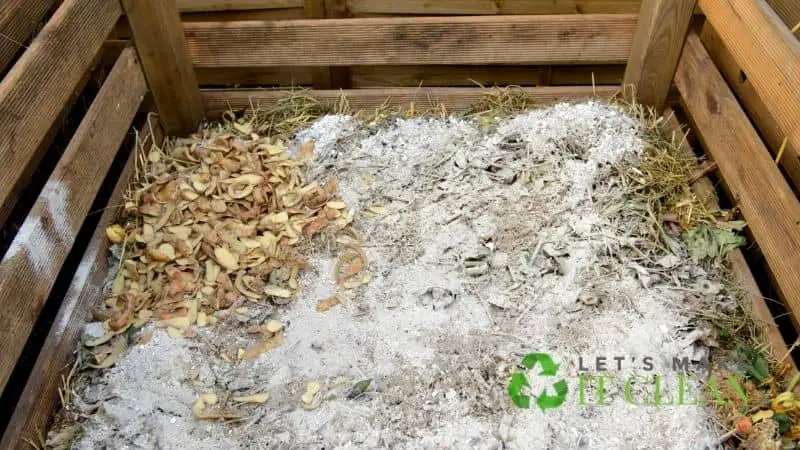Do you want to learn everything there is about how to start composting in the city? Look no further than this article.
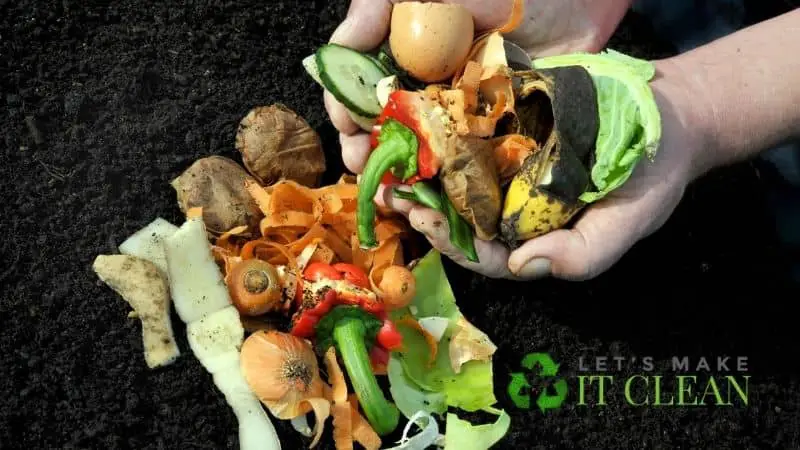
There is a wide range of reasons that drive city dwellers to start composting. One reason could be creating a clean and healthy environment for the children to enrich their soil.
Quick Navigation
If you don’t have the correct composting knowledge, you could cause a pandemic. Therefore, you ought to understand the different types of composting systems that favor urban settings. There are also several ways of speeding up the composting process that you should know about.
We have dug through multiple resources to investigate composting in the city. This article will help you learn how to turn your waste into black gold.
How to Compost in the City
Making compost in cities is not as complicated as it may sound. With the right type of composter, you have the power to recycle the waste, which could have otherwise polluted the environment.
So, in making compost, you improve people’s lives in the cities and improve your soil fertility.
Gathering and mixing nitrogen-rich material with carbon-rich material using an even ratio is recommended in making this compost.
Food scraps, flowers that you pick from your garden, and plants make up green material vital in compost making.
The nitrogen sources for your compost-making system include straw, a paper that you shred in your office, and the dry leaves you sweep off your yard. Add all this material to your preferred composters and add water. At regular intervals, turn the bins’ content for even decomposition.
Types of Urban Composting
Not every type of composting favors city dwellers. Due to the limited space and high population, some composting methods are highly discouraged in urban settings. That should not scare you from making your own compost. Use any of these types that best goes in line with your lifestyle:
1. Compost Pile
Compost piles work best for people who have backyards. As long as you have some space in your backyard that you can spare for composting, you are good to get started. A compost pile requires minimum maintenance. All you have to do is gather all the food waste and other scraps, then pile them up in your backyard.
After a while, use a shovel to turn the compost to decompose the material in your pile. If you are afraid of rodents and other animals ruining your compost pile, build a wooden bin. You can then use this bin to toss your brown scraps or even the green scraps.
2. Tumbler
A composting tumbler serves individuals who want nothing to do with rats or other rodents. Additionally, if you have limited space, a tumbler is a wise investment in the compost-making field.
The only thing you have to do is add scraps and other material to the tumbler. You will have your compost heap ready for use as a soil fertilizer with proper moisture level and turning.
3. Municipal Composting
Municipal composting is another efficient type of composting that is helping people around the world create usable manure. San Francisco and New York are using the various food-waste programs as part of municipal composting.
New Yorkers receive small and big bins where they dump waste, which is then used in the recycling programs. If you live in one of the cities that provide these bins, it would be best to use the small one in your home. The larger bins get picked up in regular intervals as directed by the municipal authority.
4. Worm Bins
A worm bin is an alternative type of making compost that you can comfortably use in your apartment.
The indoor composter is convenient since it occupies a small space in your house. It is also easy to use; therefore, you don’t have to subscribe to an email using the bin.
Vermicomposting results in having soil that is rich in nutrients resulting in better crop growth.
If you have materials such as wooden boxes or a plastic container, you can convert them into a worm bin. However, it will help if you line the container you choose with plastic to prevent unwanted interaction with the surrounding.
Using this method of making compost requires you to use a non-colored newspaper. You will need to tear it into strips that are half an inch. Dampen the newspaper strips with some water and put them in your bin without packing them down.
Once you have the bin ready, add about four cups of soil to the worm bin. Add the worms after the soil has settled in the composter.
5. Kitchen Compost Bin
If you don’t have a backyard that you can use to compost and are afraid of worms, there is still another alternative. You will only need to put in a little more effort into maintenance. To turn your kitchen bin into compost-making equipment, drill holes on its lid.
The next step is gathering all your food waste, used tea bags, dried flowers, and plants. Add them to your improvised equipment and begin the process.
Place the bin in your desired location, and within a short while, your compost will be ready for soil use.
Tips for Making Compost in Cities
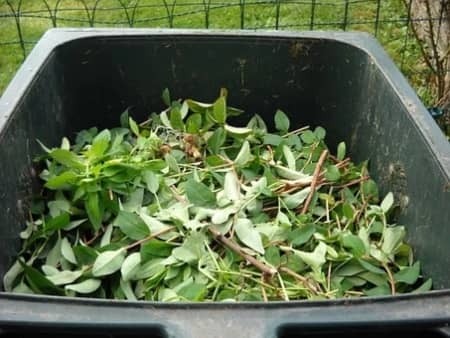
The most important thing is avoiding material that has a terrible smell. If you have fruit scraps like watermelon leftovers, don’t add them to your bin.
Similarly, it would be best not to use onion scraps, dairy products, and wet foods. The stench from these materials would potentially alter your positive mentality of making compost in cities.
Whenever you add coffee grounds and food scraps to your composters’ content, make sure you add shredded paper. Alternatively, you can add dry leaves if you don’t have shredded paper.
These two are vital in ensuring your compost pile does not get soggy. Additionally, they are an essential source of carbon required for decomposition.
Regular turning of your compost is vital to the fast compilation of the composting process. Turning will improve the microbial activity in your bin by giving the microbes better access to the composter’s content.
Whenever you want to use vegetables, chop them into small manageable pieces. Also, the fruit scraps you are using should be cut into smaller pieces facilitating a faster breakdown.
The Need for Composting in Cities
There are harmful side effects of improper disposal of waste that are avoided by having composting programs in cities. For instance, the food scraps that individuals dump in a landfill pose a threat to human health.
The scraps create greenhouse gases such as methane. Methane plays a significant role in causing global warming, which, without a doubt, is destructive.
Additionally, water from the food scraps creates toxic matter when it combines with other landfill wastes. This matter then leaks into the water system that individuals then draw drinking water from. The result is human beings and pets getting sick after drinking this water.
As a recycling method, composting comes in handy to help keep this toxic matter out of the environment. The landfills reduce in size, and people breathe more fresh air.
Also, chemical fertilizer reduces because the waste is being used to help the soil get more fertile.
Due to the making compost efficiency, the soil’s moisture level that receives the compost pile improves, resulting in better crop performance.
Speeding Up the Composting Process
Placing your composters under the sun increases the temperature inside the container. Whenever the temperature is high, the microorganisms work faster since they prefer warm environments.
However, you mustn’t fully expose your composters to direct sunlight. Instead, position them in an area that partially exposes the composters to the sun.
Bacteria disintegrate small pieces of waste faster. Therefore, make sure you cut the waste into pieces that the microorganisms will work on faster. Also, the carbon sources you employ should be small.
Air circulation is needed for faster decomposition. You should therefore turn the content of your bins regularly.
Conclusion
If you want to maximize benefits from making compost in the city, pick a type of computing that favors your situation.
If you have a bigger space in your backyard, using a backyard pile will give you remarkable results.
On the other hand, small spaces in the cities demand smaller composters such as worm bins or tumblers.

